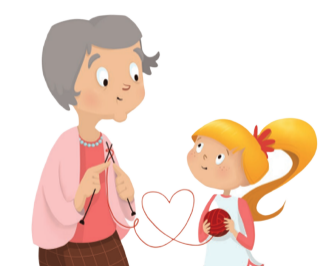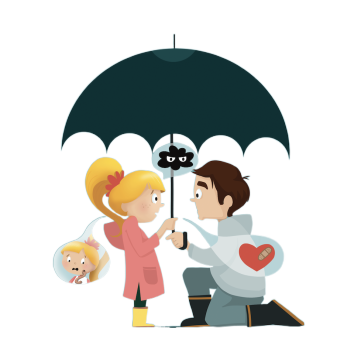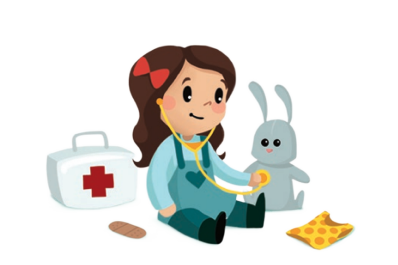


“Traffickers look for the vulnerabilities in a child. They look for what they are talking about online, and they find what it is that is missing: whether it’s attention, or love, or [physical] things.”
Dr. Roe-Sepowitz, associate professor in the School of Social Work at Arizona State University and director of the ASU Office of Sex Trafficking Intervention Research.
Frequently Asked Questions
- History of abuse and trauma
- Mental illness
- Emotional distress
- Poverty
- Lack of supervision
- Unsupervised access to phone or internet
- Trouble making friends
- Family disfunction
- Substance abuse
- Foreign national
- Runaway
If a child has experiences any of the above he or she may be at higher risk for human trafficking. We highly encourage to prioritize counseling, open and loving communication, mentoring, and seek out other supportive services.
- Love your child. A parent’s unconditional love and acceptance is a stronger force than any pressures trying to sneak in from the outside. Spending time with your child, learning what he likes and dislikes, and taking a genuine interest in his life goes a long way in building a sustainable and safe relationship between you and your child.
- Train physical boundaries. Teaching children about body boundaries, both theirs and others, is crucial to a child's growing sense of self, their confidence and how they should expect to be treated by others. Allow and teach your child not to hug everyone. When a child feels forced to show affection, she gets the message that she's not in control of her own body. And that's a dangerous message for kids to receive. Kids who think they need to comply with adult requests for affection are more likely to be sexually abused.
- Know who your child is spending time with. Your child’s in person or virtual friends have a massive impact on them and can either help them stay safe or put them in danger. Ask questions about who your child is spending time or communicating with in person or online. Be involved in your child’s relationships, meet his or her friends and their families.
- Talk to your child about relationships and sex. Important topics to cover include healthy relationships, sexual assault, sex trafficking, sexting and sextortion.
- Talk to your child about internet safety. Communication and trust is key to helping our children open up if they see something exploitative or meet someone potentially dangerous online.
- Know what your child is doing on the phone or computer. Social media and apps are the primary recruitment and grooming tools used by traffickers. To mitigate this risk, place computers and gaming consoles in common areas so you can see what is going on on the screen, monitor social media accounts and apps, and make sure social media accounts are set to private, with location services turned off.
How do I IDENTIFY signs of child exploitation?
Trust and communication is key to an open door policy between you and your child. No matter your relationship with your child, take the time to communicate that he or she can come to you about anything. Communicating that you will believe her, responding calmly, and assuring her that you will be on her side goes a long way in identifying child exploitation. Here are some warning signs to look for:
- Sexting – sending sexual images via social media or text
- Dramatic change in friend group
- Older or controlling boyfriend
- Unexplained money, clothes, or other expensive goods
- A change in behavior or isolation from parents and friends
- Anxious, fearful, or submissive behavior
- Unexplained injuries or bruises, pain in the abdominal region, bleeding, or psychosomatic pain
- Signs of depression, PTSD, or self harm
- Abrupt change in behavior, school attendance, or attention to schoolwork
- Development of physical or psychological challenges (ex: stutter, seizures, or learning difficulties).
- Remain calm. Do not become angry or yell.
- Remember that your child has been victimized.
- Remember that your child needs support.
- Take away your child’s phone and computer before any evidence can be deleted.
- Contact local law enforcement if you suspect a crime has been committed by or against your child.
“In [my past work as a government agent], we call that creep guy “Uncle Skippy.” Look, every time you put that picture up … just know that Uncle Skippy is watching. Uncle Skippy is always watching whatever you put up there. [We need to] get kids thinking about those dangers.”
—Tim Ballard, O.U.R. Founder
- Human trafficking is a criminal act. It is the illegal trade of human beings. It involves the use of force, fraud, or coercian of people to obtain sexual acts, labor, or organs. It is a crime under Swiss federal law, US federal and state law and international law.
- See also: Swiss Criminal Code, Article 182, on page Trafficking in human beings
- See also US Federal Law: 18 USC Ch. 77: PEONAGE, SLAVERY, AND TRAFFICKING IN PERSONS
If you suspect it. Report it.
SWITZERLAND
- Crisis Response, Emotional Support & Ongoing Advocacy: https://www.act212.ch/ https://www.trafficking.ch/
- Report child exploitation or general human trafficking:Human Trafficking Anonymous Hotline (0840 212 212)
- Report human trafficking onFacebook
UNITED STATES
- Report online child exploitation:CyberTipline (National Center for Missing and Exploited Kids)
- Report general human trafficking:Human Trafficking Hotline (888-373-7888)
- Report human trafficking onFacebook
GLOBAL
- Report online child exploitation:Find your country’s internet reporting hotline (search tool)
- Report general human trafficking:Global Hotline List
- Report human trafficking onFacebook
Resources
- O.U.R. Internet Safety Videos (Part 1, Part 2)
- O.U.R. Blog: If 1 in 5 children will be solicited sexually online, how can parents prepare their kids to be safe?
- Love 146 Internet Safety Guide {Apps, Sexting, Internet Use, Pornography, Red Flags, etc.}
- StopSextortion.com
- My Mobile Watchdog
- Covenant Eyes
- Talk More Tech Less
- Fight the New Drug
- Net Nanny
- B4UClick








